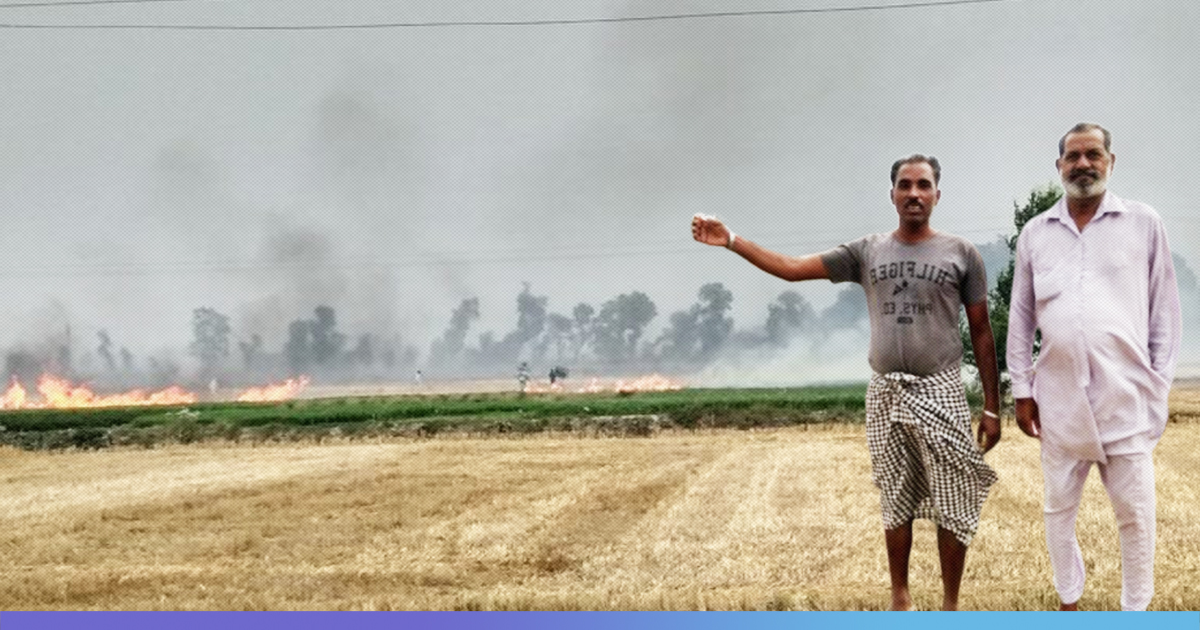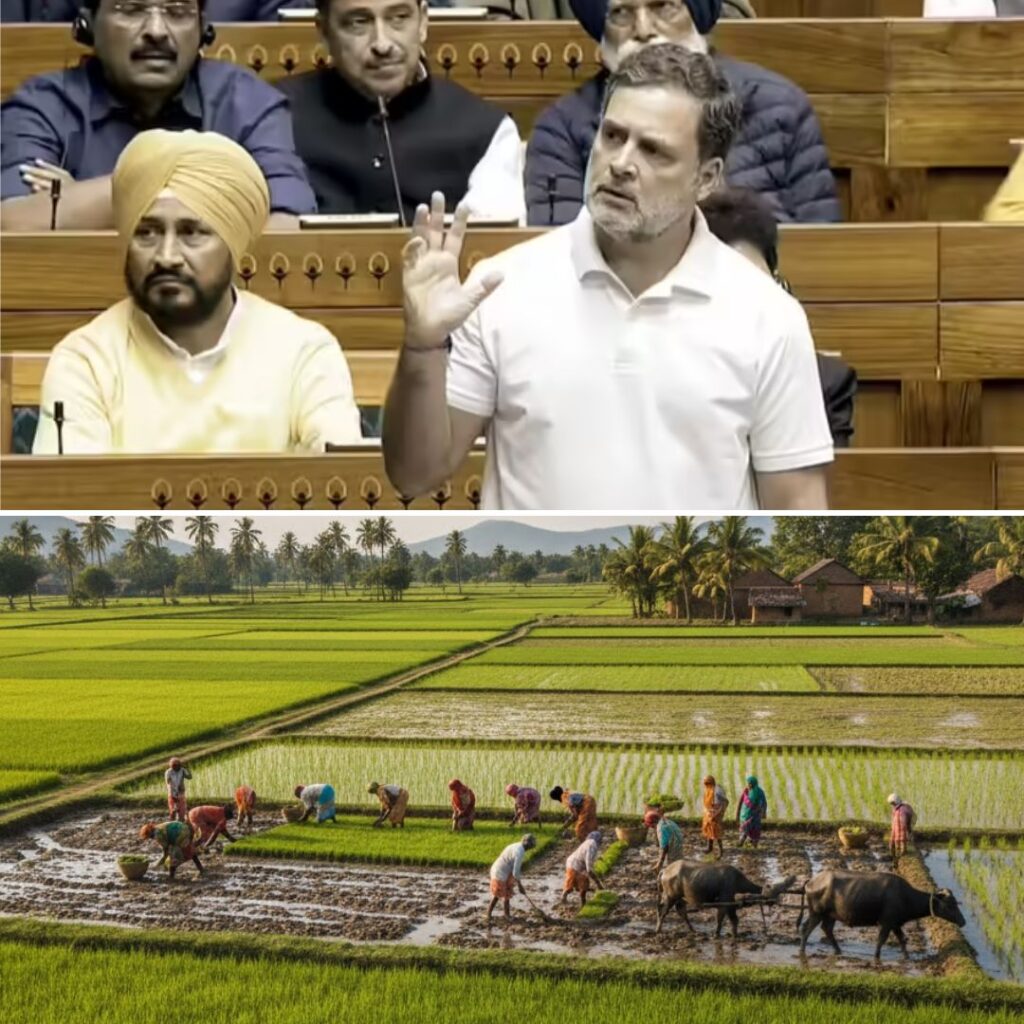- Punjab along with Haryana is often called the food bowl of India. However, Punjab farmers are trapped in a cycle of debt and on average, at least two farmers are committing suicide every day in the state since 2000, an estimate based on multiple reports.
- Mongabay-India travelled across several regions of Punjab, which goes to polls on May 19, and found that the agricultural sector needs a long-term, focussed, systematic change and not quick fixes like loan waivers and income guarantee schemes.
- This year, the widows of farmers who have committed suicide have one of their own as a candidate in the elections standing from Bathinda, one of the 13 parliamentary seats in Punjab.
In the agrarian state of Punjab, an average of two farmers have committed suicide every day, over the last 18 years, an estimate based on multiple reports. These statistics should have jolted the government machinery into addressing the issues of support price for crops, machinery investment, and the resulting debt.
Instead, the farmers, their unions and experts across the state feel that the major political parties seeking votes in the 2019 elections to India’s parliament have no substantial action plan to address farmer concerns.
Of the 543 seats in the Lok Sabha, Punjab accounts for 13 and they are going for elections on May 19, in the seventh and final phase of the elections.
Sensing apathy of the present political class towards their issues, widows of farmers have decided to take matters into their own hands. A group of such widows, who formed the Kisaan Mazdoor Khudkhushi Peedit Parivar Committee, a committee of families affected by farmer and farm labourer suicides in 2017, and have decided to stand in the elections this year.
Their battle starts from one constituency this time — Bathinda. Veerpal Kaur, a widow of a farmer who is standing as an independent candidate, is challenging the sitting Member of Parliament (MP), Harsimrat Kaur Badal of Shiromani Akali Dal (SAD).
The vicious cycle of agriculture
About 80 percent (4.23 million hectares) of Punjab’s total geographical area (5.03 million hectares) is under cultivation and about 75 percent of its total population is involved in agriculture. The northern Indian state, along with the neighbouring Haryana, is known as the food bowl of India.
“The politicians say that they want to significantly increase the income of farmers or double it, but they can’t even ensure that we get back our investment,” Lachhman Singh, who is the general secretary of Punjab’s Khet Mazdoor Sangh, a farm labour collective, told Mongabay-India.
Singh stated that agriculture has become a vicious cycle for the farmers – farming is now heavily machine-based and the input cost has increased consistently over the years, while returns have not kept pace.
“The support price offered for crops has not increased at the same rate. Thus the farmers are not able to even recover their investment in crops and it is the same story year after year. This results in heavy debt for which they seek redressal and in some cases, it drives them to commit suicide. Why is there no one who offers to give us a better price for our crops as suggested by the Swaminathan Committee itself? It is because they do not want the farmers to stop begging in front of them, for loan waivers,” Singh added.
The Swaminathan Committee report had recommended giving farmers a minimum support price (MSP) that is 50 percent profit above the cost of production.

“The normal political thinking is that an increase in the irrigation facilities will lead to an increase in production, ending the woes of the farmers. Everyone including politicians, say this. But Punjab gives you a lesson. Punjab has 98 percent assured irrigation which means that nearly every crop field gets an assured supply of water. The productivity of crops like rice and wheat is the highest in the world and yet it has become a hotbed of farmers suicides. How do you correlate this? This is something that no political leader, policymaker or expert is willing to explain,” said Devinder Sharma, an agriculture policy expert.
“This phenomenon also dispels the idea that agricultural distress in India is primarily because of lack of irrigation. If that’s the case, then why, in a state like Punjab (which has irrigation facilities) there is high distress and suicide rate among farmers. There is hardly a day we are not getting reports of the suicide of farmers in Punjab,” Sharma told Mongabay-India.
Lachhman Singh explained that their group is not supporting any of the mainstream political parties in the state – Bharatiya Janata Party, Indian National Congress, Shiromani Akali Dal or the Aam Aadmi Party. The farmers are disillusioned with the promises made by the parties. “I and thousands of other farmers thus prefer using the None of The Above (NOTA) option,” he said.
Farmers’ widows challenge the mainstream political parties
With farmers committing suicide, it is their widows who are taking forward the fight for justice. Veerpal Kaur, who is standing for elections from Bathinda, said that the main reason behind her fighting the polls is that the mainstream political parties have failed many like her. “It is time we come forward to work for ourselves,” said Kaur. She revealed that initially there was a lot of pressure on her to withdraw her candidature but the group together somehow managed to withstand that.
Kiranjit Kaur, a postgraduate student and the convenor of the Kisaan Mazdoor Khudkhushi Peedit Parivar Committee told Mongabay-India that though they have about 10,000 members right now, limited funds was the main reason for not being able to have candidates in all the seats.

Veerpal Kaur’s daughter, Diljyot, who is a college student, is accompanying the campaign team in an auto-rickshaw as they cover 18-20 villages every day. She distributes pamphlets, helps in gathering the crowd and collects money from villagers for their campaign.
“We don’t have big cars. Our vehicle is a humble auto-rickshaw but it does help in garnering more attention from voters. My mother is an Anganwadi (rural child care centre) worker and we have no money. Our entire campaign is based on crowdfunding. People give us as little as Rs. five to Rs. 500 in some cases,” said Diljyot, while pointing out at the auto-rickshaw which costs them Rs. 1,300 everyday.
Flood water scarier than the threat from Pakistan
Over the last few months, Punjab has seen several protests related to agriculture. For instance, in January 2019, thousands of farmers protested against the cases filed for defaulting on loans, seeking compensation for families of those who committed suicide and a proper Minimum Support Price (MSP) for their crops. Similar protestswere organised by different farmer groups in February and March 2019 as well. On May 14, police in Chandigarh had to even use water cannons to disperse farmers from Punjab who were trying to enter the city.
“But even in the election year, no one cares. All they offer is assurances in every single election,” said Succha Singh, who lives in village Tindiwala just few hundred metres away from the sensitive India-Pakistan border in Ferozepur region of Punjab.
Singh remarked that he and several others like him in his village and the adjacent ones, that live close to the border that divides the hostile nations, are not as scared of cross-border conflict with Pakistan as much as they are scared of floodwater from nearby flowing river Sutlej destroying their crops. “Flood water from Sutlej destroys our crops and further pushes us in the debt trap,” he added.

Mongabay-India travelled across several constituencies of the state and found that in every area the stories of farmers being driven to the never-ending debt trap and death are the same.
“I am yet to get the payment for my sugarcane crop last year but I still have to pay interest on the loan that I had taken for this crop,” Jasdev Singh, an engineering graduate in Sangrur area, told Mongabay-India while he was preparing his fields for sugarcane crop this year again.
On asking why is he growing sugarcane again, Jasdev Singh said, “There is no escape for us as there are any jobs for my qualification … there is nothing else to do.”
Devinder Sharma added that all the parties fighting elections in Punjab are not going beyond doing lip service for farmers. “It is not on the top of their agenda. They are only promising quick fix arrangements but are not coming out with steps to address it in the long-term,” Sharma said.
Stubble burning continues unabated
Stubble burning in states like Punjab is often touted as one of the many reasons behind air pollution in Delhi and its adjoining region. But despite orders by the courts, tribunals banning stubble burning and the governments promising policies to address it, the practice continues unabated.
As Mongabay-India travelled across the constituencies in Punjab, it witnessed numerous such cases of the fields that had recently been burnt or were being set on fire. When asked as to why do they continue with it even when the authorities have announced measures to prevent it, the farmers said the schemes are a non-starter for them because of the high costs involved of the machines that are required for proper disposal of the farm waste.

One such farmer, Makkhan Singh, who is from the Faridkot region, said it is costlier for them to use machines to dispose of the crop waste than burning it. “Why can’t governments simply give a bonus to us for properly disposing it? Using machines to get rid of it is of no benefit to us. Burning it takes just one or two days,” said Makkhan Singh, while adding that it is unavoidable for them.
This article was originally published in Mongabay on May 16th, 2019












